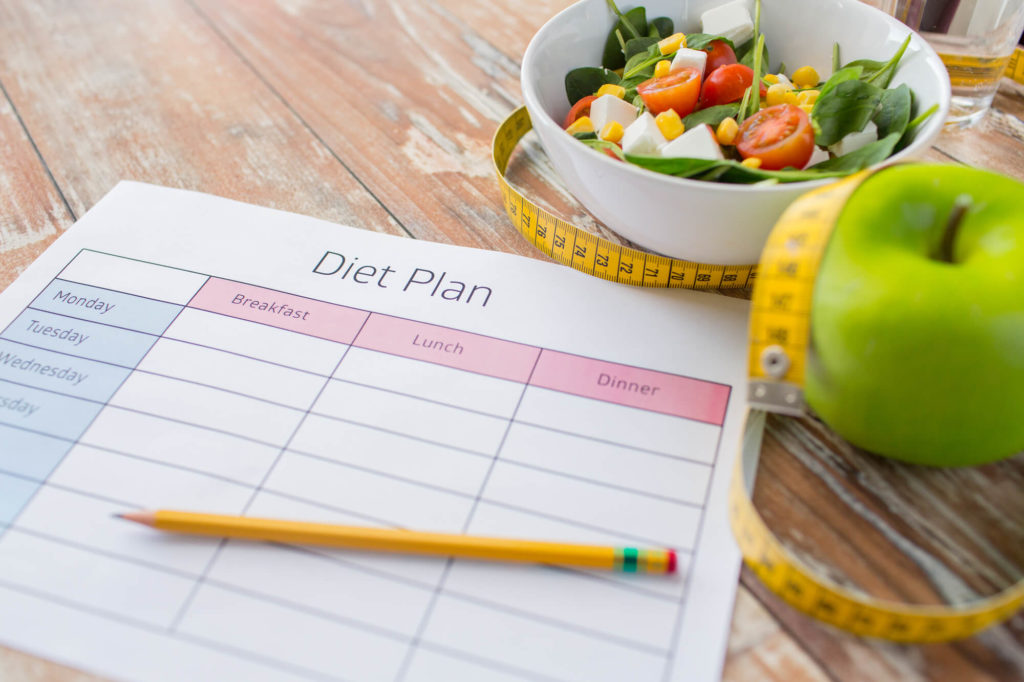More often than not, diets fail.
Often, this is due not to a lack of willpower, but to how society views diets (i.e. as a temporary change in food choices), as well as underlying food addictions.
What many of us don’t realise is that we don’t need to fall victim to the issues so many do when it comes to failed diet plans. In fact, there are steps you can take to ensure you create and stick with a diet that works for you.
In this article, we’re discussing not only why diets frequently fail, but the steps you can take throughout the dieting process to guarantee success.
Why Diets Often Fail…and Do So Quickly!
A survey conducted in the United Kingdom revealed that women, on average, start three different diets a year and stick with each for an average of 19 days, though two-thirds of those in the study had broken the diet by day five.
Another survey of 1,000 women revealed most stick with a diet for an average of five weeks. And while these surveys suggest different average results, they agree on one important fact: Most people do not stick with their diet plans.
There are many reasons why this happens:
-
People rely on willpower rather than science – If you rely on willpower to lose weight, you won’t succeed. If you grow too hungry, you will overeat and essentially “ruin” your diet early on.
-
People focus too much on calories – The calories in/calories out perspective no longer holds true. It’s the type of calories you eat that matter and as such, you should focus on eating nutrient-dense foods to remain satisfied, fueled, and ready to go.
- People don’t have a plan – Without a plan, you’re setting yourself up for failure. It’s important to create a plan that you can stick to and that you want to stick to over time. Doing so is a simple way to ensure your prolonged success.
Of course, there are other reasons why a diet might fail. But luckily, there is much you can do to guarantee your success. The key to the success of following any diet plan is to follow a holistic approach. Being on a diet does not mean just cutting out some foods and sticking to others. You should change your lifestyle to be able change your diet for better and stick to it. Below, we’re offering three steps to help you do just that.
Putting Together Your Own Successful Diet Plan
Step 1. Shopping for Groceries

The groceries you purchase set you up for success or failure. If you stock your home with unhealthy choices, you’re guaranteed to fail. But by preparing yourself properly and shopping with the right mindset, you can guarantee success.
Here are a few helpful tips for shopping:
-
Don’t shop for groceries on an empty stomach – Doing so will prompt you to make purchases that align with your cravings rather than the smart decisions you want to make.
-
Prepare a list – Create a basic grocery list full of fruits, vegetables, lean meats, and complex carbohydrates. Keep meals simple to avoid wasting money on items you won’t (or shouldn’t) be using.
-
Shop the perimeter – The perimeter of the store is where all of the healthy and fresh food options are. Avoid snack and processed food that lies in the middle of the store.
-
Don’t fall victim to labels – Labels that tout a product as low fat, organic, or whole grain don’t necessarily mean foods are healthy. Do your research to ensure you aren’t compromising your efforts.
- Get in and get out – The longer you wander, the more likely you are to purchase something you don’t want or need. Get everything on your list, and get out!
Related: Noom Vs. Weight Loss Pills
Step 2. Cooking Your Meals
It isn’t enough to have healthy foods to succeed with your diet plan. You must also commit to cooking the meals you’ve planned.
Here is how you can ensure you follow through to avoid temptations at meal time:
-
Plan your meals ahead of time – You should plan your meals and then create your grocery list. This ensures you only buy the ingredients you need and avoid those you don’t.
-
Prep your meals ahead of time – If you prep your lunch and dinner the night before, you won’t feel tempted to pick up fast food to save time or if you’ve had a long day and don’t feel like cooking.
-
Measure your meals – Use nutrition facts on food labels to understand portion sizes and how much you should eat of each component of the dish. This will also help you balance your macronutrients (i.e. protein, carbs, and fats) to ensure you’re getting the nutrients you need.
-
Eliminate unnecessary additions – If you typically put fatty dressing on a salad, opt for a lighter option. Instead of butter on your vegetables, choose a nice spice blend.
- Limit leftovers – If you cook too much you’ll be more likely to overeat. Learn to control how much you cook so you have just enough for one meal or enough for two if you want to eat the rest as leftovers the next day.
Read: 300 Calorie Meals Which Feel Huge
Step 3. Eating Your Meals
It isn’t enough to shop for and prepare your foods to be successful on a diet. In fact, it’s important you eat them properly as well if you are to succeed.
Here are a few tips to make the most of your meals:
-
Eat slowly – If you eat your food too quickly, you won’t know whether you’re still hungry or are satisfied. It takes the body about 20 to 30 minutes to realise it is satiated. Give it all the time it needs to recognise it is full.
-
Focus on those you eat with – When you focus on who you’re with when you eat and having conversations, you’ll naturally slow down your eating.
-
Consume lots of water – Water helps you feel fuller and offers countless other benefits when combined with a healthy diet plan.
-
Don’t eat until you’re stuffed – If you feel uncomfortable when you’re done eating, you’ve eaten too much. Eat until you’re about 80 percent full and listen to your body’s cues to understand if you need more food or not.
- Consume small meals on a regular basis – Consume five to six small meals per day to avoid overindulging at meal times.
The Right Habits and Mindset Will Set Your Diet Plan Up for Success
From shopping to preparing and eating food, every step matters when you want to guarantee the success of your diet plan. As such, it’s important to use the tips above to support your new healthy lifestyle commitment.
To further your healthy lifestyle commitment, you should also consider supplements like PhenQ. PhenQ suppresses appetite, making it easier to consume less of the right foods, all while burning stored fat and increasing your energy levels.
Related: 1200 Calorie Diet Plan
Remember, a healthy lifestyle must be approached from a holistic perspective. And with the above tips in mind, you can ensure your diet is yet another component of your guaranteed success.




